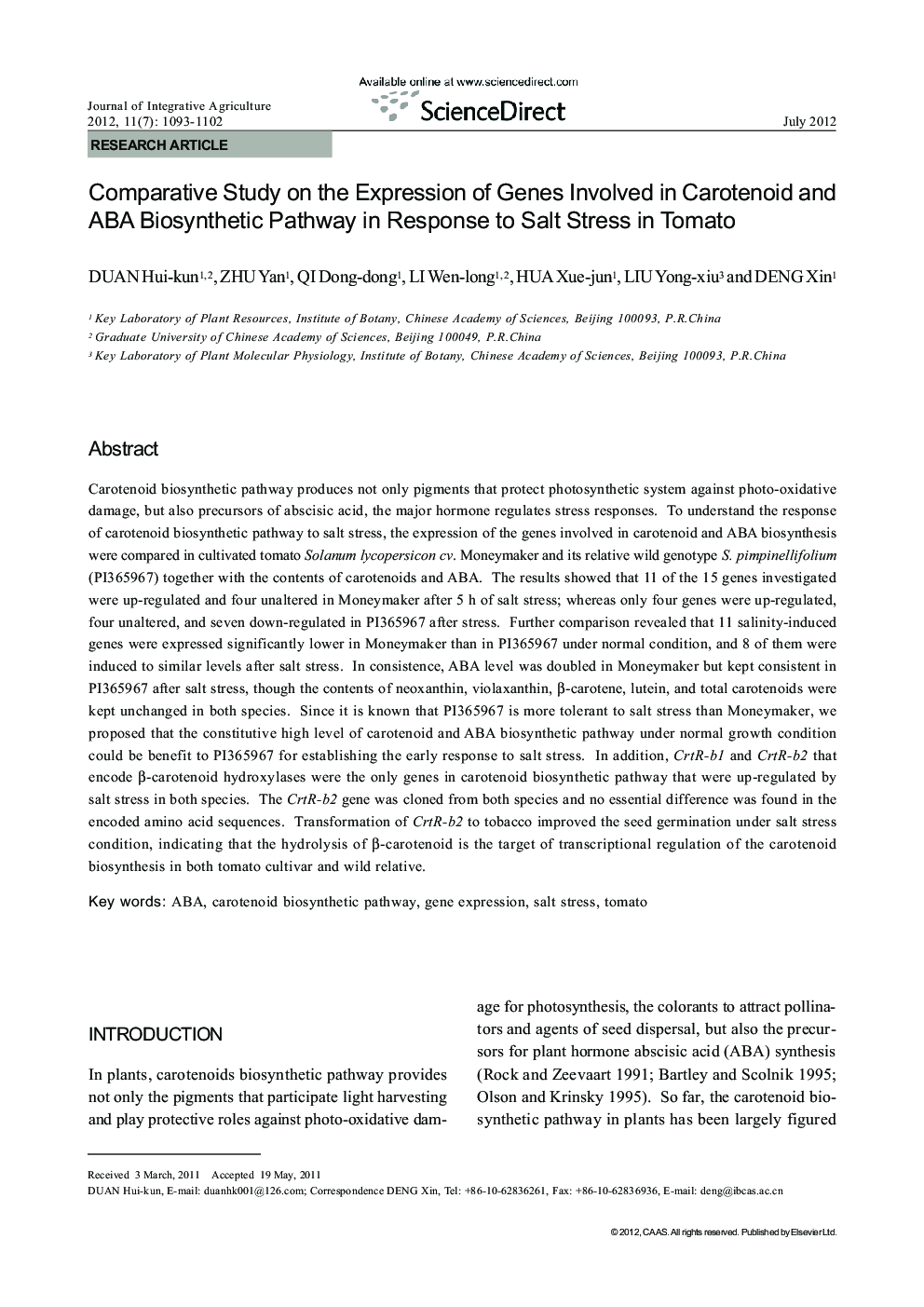| Article ID | Journal | Published Year | Pages | File Type |
|---|---|---|---|---|
| 4495120 | Journal of Integrative Agriculture | 2012 | 10 Pages |
Carotenoid biosynthetic pathway produces not only pigments that protect photosynthetic system against photo-oxidative damage, but also precursors of abscisic acid, the major hormone regulates stress responses. To understand the response of carotenoid biosynthetic pathway to salt stress, the expression of the genes involved in carotenoid and ABA biosynthesis were compared in cultivated tomato Solanum lycopersicon cv. Moneymaker and its relative wild genotype S. pimpinellifolium (PI365967) together with the contents of carotenoids and ABA. The results showed that 11 of the 15 genes investigated were up-regulated and four unaltered in Moneymaker after 5 h of salt stress; whereas only four genes were up-regulated, four unaltered, and seven down-regulated in PI365967 after stress. Further comparison revealed that 11 salinity-induced genes were expressed significantly lower in Moneymaker than in PI365967 under normal condition, and 8 of them were induced to similar levels after salt stress. In consistence, ABA level was doubled in Moneymaker but kept consistent in PI365967 after salt stress, though the contents of neoxanthin, violaxanthin, β-carotene, lutein, and total carotenoids were kept unchanged in both species. Since it is known that PI365967 is more tolerant to salt stress than Moneymaker, we proposed that the constitutive high level of carotenoid and ABA biosynthetic pathway under normal growth condition could be benefit to PI365967 for establishing the early response to salt stress. In addition, CrtR-b1 and CrtR-b2 that encode β-carotenoid hydroxylases were the only genes in carotenoid biosynthetic pathway that were up-regulated by salt stress in both species. The CrtR-b2 gene was cloned from both species and no essential difference was found in the encoded amino acid sequences. Transformation of CrtR-b2 to tobacco improved the seed germination under salt stress condition, indicating that the hydrolysis of β-carotenoid is the target of transcriptional regulation of the carotenoid biosynthesis in both tomato cultivar and wild relative.
